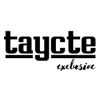Dive Brief:
- A second class action lawsuit was filed against Brew Dr. Kombucha alleging that its products falsely advertised the levels of probiotic bacteria that was in each beverage. According to lab tests, the “Clear Mind” kombucha drink contains 50,000 CFUs of probiotic bacteria per bottle, which is 20,000 times less than the billions advertised.
- Although the lawsuit claims that the kombucha company advertised its product based on the "probiotic bacteria" in each bottle, the labels in the lawsuit filing state that “each bottle hosts billions of beneficial bacteria, yeast and organic acids” and that it “hosts billions of live and active cultures.”
- The suit calls it "telling" that the company recently changed its labeling to remove all reference to the probiotic content of its drinks. In the first case, which is still ongoing, the plaintiff leveled the similar claims that the advertised probiotic content did not match what was actually in the bottle.
Dive Insight:
This case is just the the latest in recent years against several kombucha companies alleging that their labeling does not match what is actually in the bottle. In addition to the original lawsuit against Brew Dr. Kombucha filed in May last year, Health-Ade recently agreed to pay $4 million to settle two lawsuits citing inconsistencies between the sugar and alcohol levels in the beverage and what was stated on the label. Likewise, O Organics, Better Booch, The Bu and Rowdy Mermaid Kombucha have all faced similar lawsuits. Although cumbersome for the companies, all these suits have all been dismissed.
For companies that settle, there are ramifications including financial compensation as well as reformulations and labeling corrections that can alter the brands in a noticeable fashion.
Although not as damaging as a guilty verdict in court, a settlement and even a dismissal can cause consumers to develop trust issues with brands for which they previously patrons. Not only can multiple lawsuits cause consumers to become wary, but it can also force companies to change their brands in ways that can damage their carefully crafted images.
In the case of Brew Dr. Kombucha, removing any mention of probiotic content prevents the company from touting health benefits that were previously part of its image and could affect sales. At the same time, this particular brand has pursued packaging changes of its own accord as it looks for ways to stand out from the pack. The company could spin this new labeling as an effort to further differentiate itself and play up other attributes like its antioxidant content from tea or the functional benefits associated with its individual flavors.
Still, the wild popularity of kombucha is based primarily on the drink’s probiotic content and so the industry may wnat to consider coming up with standards of identity to give consistency to manufacturers producing the beverage. By doing so, it could provide some level of protection because then consumers will know what to expect in a beverage and manufacturers will have greater guidelines to avoid misleading claims on their labels.
As the kombucha market matures, its sales are beginning to level off, potentially making it harder to weather repeated lawsuits as when it was a nascent, hot category. Food Navigator reported sales for the year ending February 24 of refrigerated kombucha and other fermented beverages rose 21% to $728.8 million. Compared with a year before, sale velocities of the beverage were down, meaning more places are carrying kombucha, but may not be selling it as fast as before.













